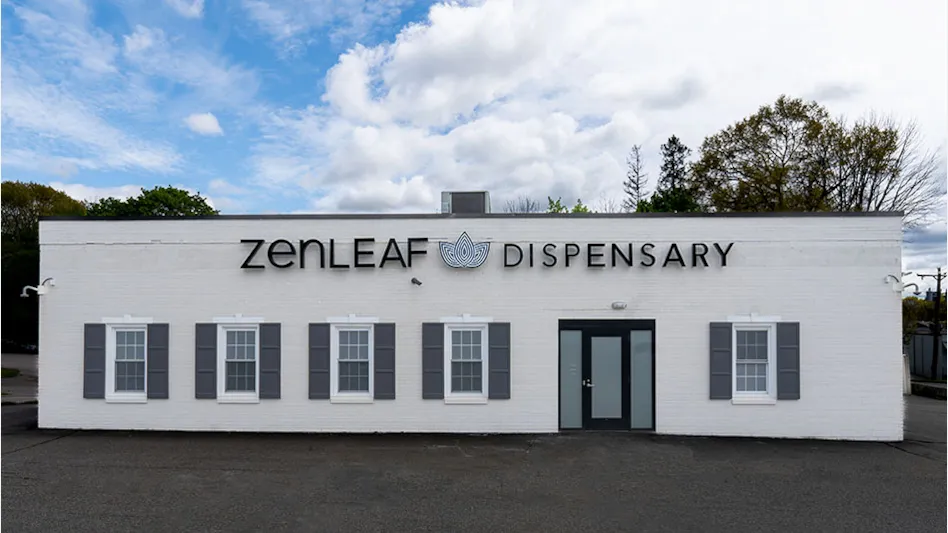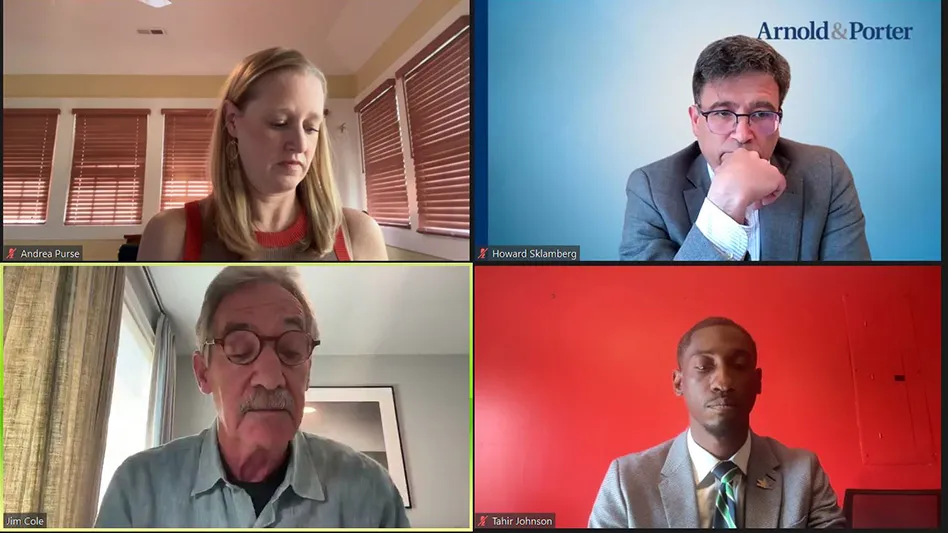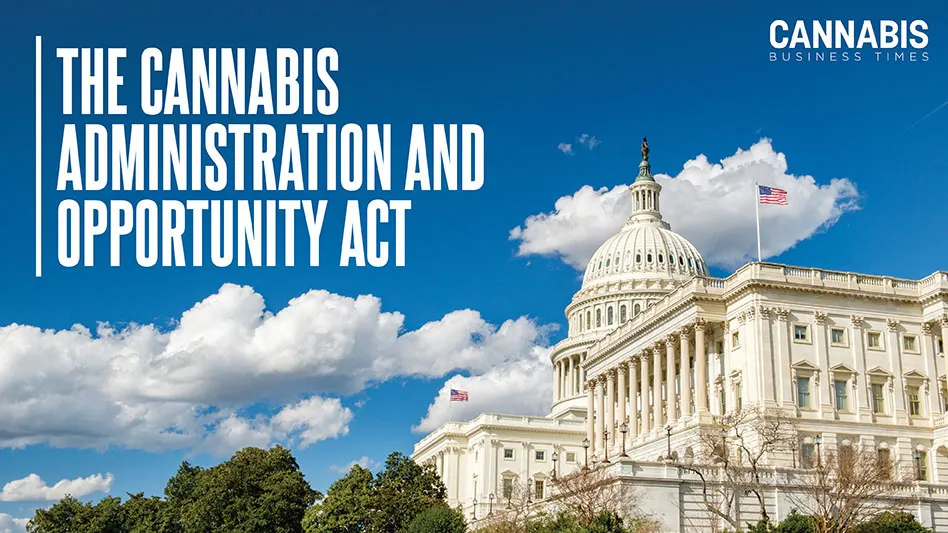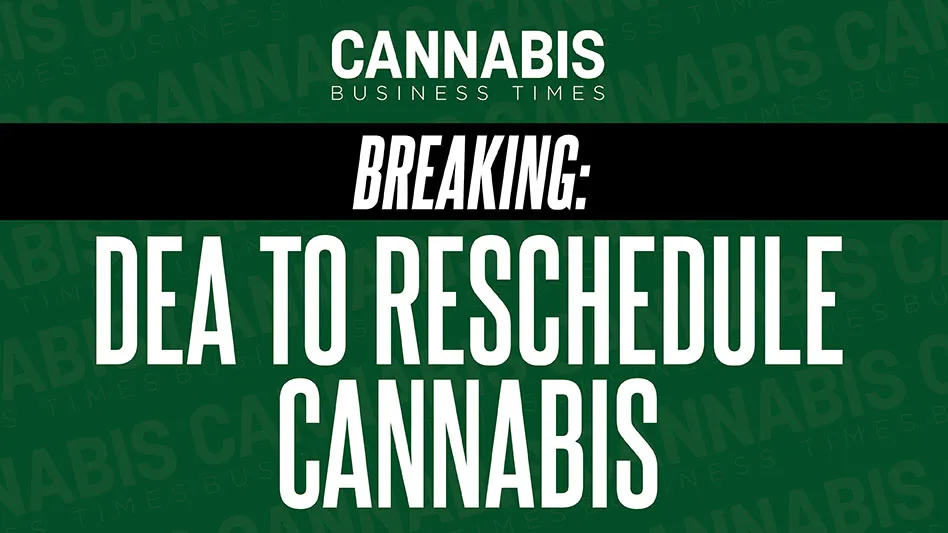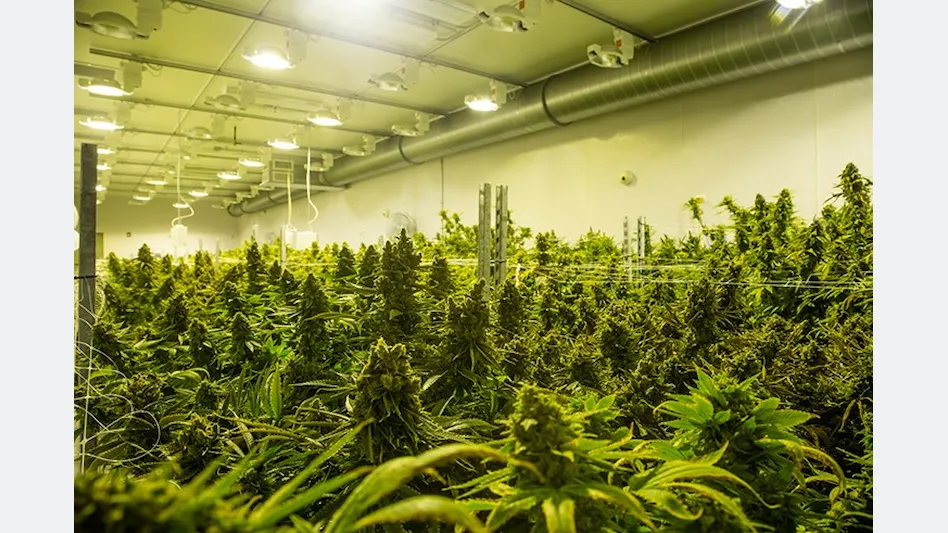
Top photo: Cresco Labs' Illinois cultivation facility
Ohio has awarded a contract for a toll-free help line for medical marijuana patients, caregivers and doctors as the program continues to roll out in the Buckeye State for its planned September 2018 launch.
The call center will offer factual information to those accessing the program, but will not provide medical or legal advice, says Cheryl McDaniel, CEO of Direct Success Inc., a business support services company whose Ohio subsidiary, Extra Step Assurance, will operate the help line.
“We’re not directing people, but what we’re going to do is give them the tools to make their own decision,” McDaniel says.
Representatives will be available at the new call center beginning in June to provide sources of information that callers can use to learn more about the program and start conversations with their doctors, lawyers and patients.
“In a nutshell, … it’s an open line for anyone to get education on the plant, on the regulations, and any question that they may have if they’ve been recommended it from a doctor or if they haven’t been recommended and they’re just trying to get some information about the program in general,” says Steve De Jacimo, a spokesperson for Extra Step Assurance. “It gives the general public an option to discuss those issues with someone who has all of the background and the regulations based on citations right in front of them and has been trained in the law of the state.”
Direct Success Inc. has been building its database and currently has more than 5,000 data points on which it can offer factual, research-based information, McDaniel says. They have compiled state regulations, relevant articles from medical journals and more to help answer questions and educate about medical marijuana.
Ohio’s regulations require this help line to be in place, and Direct Success Inc. responded to the state-issued request for proposal (RFP), which McDaniel says was one of the most stringent she has ever seen.
“It was very exacting in what you had to show of your capabilities as far as protection of data, the training of people [and] … how fast … you answer a phone when someone calls,” she says.
Although many states have a phone number people can call for help with licensing applications and the issuing of medical marijuana ID cards, McDaniel believes Ohio’s help line is unique.
“To our knowledge, there is no other single source in the United States that is doing this type of education,” she says. And education is one of the things Ohio is struggling with in its medical marijuana program, she adds. “Patients don’t understand it completely, doctors don’t understand it, and I think that’s one of the reasons we’re so passionate—not to talk people into it, but [because] education is out there .”
A shortage of doctors to recommend medical marijuana to patients has been an issue in other states like Pennsylvania and Florida, McDaniel says, and adds that this sort of education can help get more physicians involved in Ohio’s program.
The call center will have six employees who will go through extensive training, McDaniel says, which covers how to talk with patients and doctors, the Health Insurance Portability and Accountability Act (HIPAA) and using the database to access the data points.
“It really is an honor to be allowed to be the one educating people with … factual, researched information,” McDaniel says.
“I think the main benefit is to give the general public an opportunity to have [a] live discussion about the issues that they may be incurring beforehand or during their medical marijuana recommendation,” De Jacimo adds. “This is a better place than, let’s say, a chat room or something that is being read online or in a book. This gives them immediate connection with someone who has answers for them that are current and up to date based on the law and the medical profession.”
Charlie Bachtell, CEO of Cresco Labs, an Illinois-based medical marijuana company that has operations in Pennsylvania and has been awarded a cultivation license in Ohio, says the help line is needed and shows that Ohio is committed to making its medical marijuana program a success.
“I think this is Ohio showing that they’ve really thought about this, they looked at other markets, they looked at other state programs,” he says. “It’s such a smart idea.”
Establishing a Regulatory Framework
Ohio has much work ahead when it comes to finalizing the rules and regulations of its medical marijuana program, from establishing a doctor registry to data reporting, but McDaniel says the state is on the right track.
“Ohio has done a really good job of thinking it through in a common-sense way,” she says. “I think they’ve done a thoughtful job of looking at what every other state was doing right or perhaps not so right and then adjusting it from there.”
Bachtell says Cresco is also happy with how regulations are rolling out in the state.
“Ohio used a lot of the regulatory structure from Illinois, so we’re very familiar with it, but again, they made some very nice modifications that are going to be very pro-patient.”
For example, Illinois requires that the state collect the fingerprints of its medical marijuana patients and does not include pain as a qualifying condition, Bachtell says, while Ohio does not require a background check process and has a general pain indication.
“Ohio did a great job of balancing all of the moving parts to create a structure that’s going to be successful for everybody involved,” he says. “We’re happy to be a part of it.”
Marijuana Policy Project (MPP) was supporting and working toward the passage of a voter initiative for medical marijuana in the state when lawmakers created and passed their own bill, which Gov. John Kasich signed in June 2016, says Chris Lindsey, senior legislative counsel for MPP.
“We were pleasantly surprised to find that the agencies that were involved were interested in making it functional, and they actually did want this to be a successful program, and once that was clear, then a lot of it became just a matter of saying, ‘OK, well, yes to this, but look at what’s happened in other states,’ and that’s how we were able to be in the conversation,” he says.
As regulations continue to roll out, guidelines for doctors must be established, Lindsey says. Doctors must be approved and certified to recommend medical marijuana, he says, but an approval process is not yet established. Seriously ill patients were supposed to get protections and the ability to legally use medicinal cannabis as the laws were established, Lindsey adds, but the lack of criteria for doctors has made it difficult for patients to access medical marijuana.
“They still haven’t solved the fundamental problem, which is doctors still don’t have clear guidance,” Lindsey says. “The state hasn’t figured out what the standard is. Patients are still left waiting until the state says that they don’t have to wait anymore.”
The state staggered its application process, issuing cultivation licenses first before opening applications for processors and dispensaries. Testing labs are on their own track, and the state mandates that universities receive priority for testing licenses. Two tiers of cultivation licenses were issued in November, with the other license types expected to be awarded in the coming months.
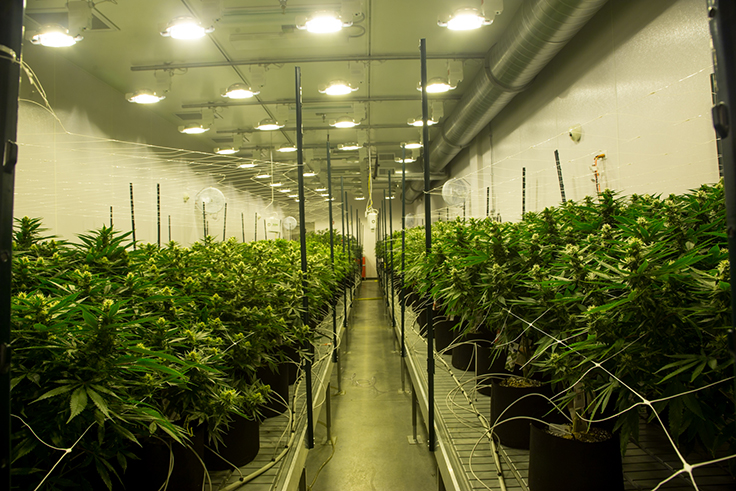
Cresco Labs has operations in Illinois and Pennsylvania, and was issued a cultivation license in Ohio. Here, plants grow in Cresco's Illinois cultivation facility.
“[The cultivation licensing process] was extremely competitive and the scores were really close to one another, and as soon as the results came out, there were threats and then lawsuits,” Lindsey says. “Those lawsuits are still playing out, and in the meantime, these other licenses started getting awarded.”
Although plans have been announced for an adult-use ballot initiative in the state, Lindsey says he would like to see the medical marijuana program succeed first.
“Right now, I would like to see Ohio’s … medical marijuana program succeed because in my opinion, that’s going to be one of the strongest cases for legalization,” he says.
Building a Business
Cresco Labs broke ground on its Ohio cultivation facility in Yellow Springs (in the southwest part of the state) in December. The company also applied for a dispensary permit and hopes to be vertically integrated in the state, Bachtell says. Cresco will offer a full product suite of flower, concentrates, edibles and vaporizer pens, he adds, and product should be available this summer.
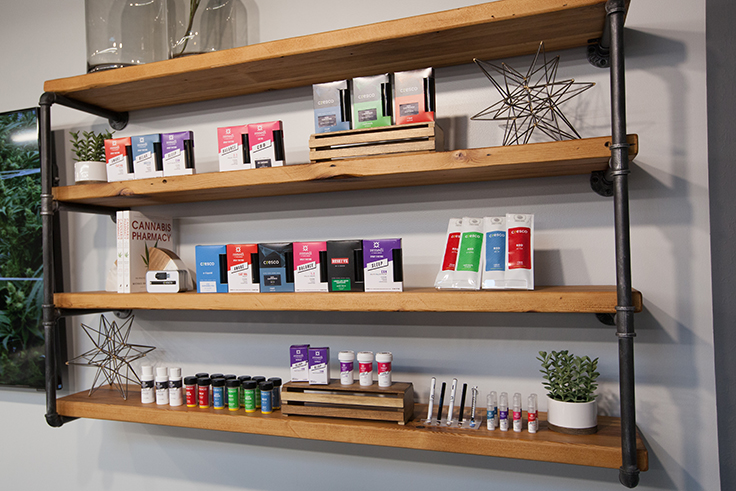
Cresco's products on display at its CY+ dispensary in Pennsylvania.
Cresco’s experience in launching a market from scratch is one of its strengths in the Ohio market, Bachtell says, having launched into similar medical-only markets in Illinois and Pennsylvania.
“In Ohio, you have to start with patient number one, followed by patient number two,” he says. “The medical community in Ohio is going to be asked for the first time ever to certify a patient to participate in the medical cannabis program. All of those are very new experiences.”
Cresco has developed the model and the assets to engage in both program development and the implemented medical program in the state, Bachtell says.
“It’s patient and program first—awareness [and] education, both to the public, potential patients [and the] medical community,” he adds.
Cresco’s goals in Ohio’s market include launching an awareness and education campaign like the ones established in Illinois and Pennsylvania to ensure that the public is familiar with the program and the processes involved. The company also wants to be involved in the implementation of a successful and sustainable program, ensuring that patients receive their ID cards in a timely manner and have access to their medicine.
Photos courtesy of Cresco Labs
Latest from Cannabis Business Times
- Rescheduling Would Have Saved Verano $80M in 2023 Tax Payments, CEO Says
- Aurora Marks 1st Medical Cannabis Shipment to New Zealand Market
- Where All 100 US Senators Stand on SAFER Banking Act
- Blumenauer Unveils Legislative Blueprint, Additional Administrative Action Needed Following Rescheduling
- Cannabis Rescheduling FAQ: What Now?
- From Custodian to Cultivation Supervisor
- California City in Cannabis Retail Desert Welcomes 1st Dispensary
- US Senate Democrats Forgo Addressing Intoxicating Hemp in 2024 Farm Bill Summary
